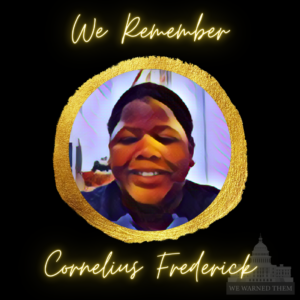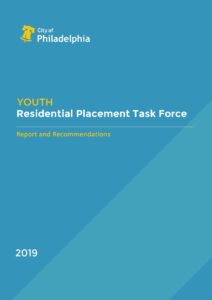Each year, the guardianship of thousands of vulnerable youth are signed over to private and for-profit residential programs that lack state and federal oversight. This means that these programs can be established fairly spontaneously and are not required to report what goes on within the facility to the state or federal government. This lack of oversight extends to:
- The identities & backgrounds of staff
- Number of children in the institutions' care
- Incidents of abuse, neglect, exploitation and restraint
- Medication [overuse or lack of] & medical treatment
- Quality of education being provided
- Violation of discrimination and ADA laws
These programs may label themselves as wilderness, therapeutic, boot camp, or religious programs, and are collectively known as the “troubled teen industry” (tti). The TTI operates out of sight and out of mind, typically in remote locations away from public scrutiny. It is a multi-billion dollar industry that exploits vulnerable youth & their families for profit.
Thousands of cases of abuse and neglect have been reported in the media over the last 40 years. During this time, young people in the TTI have experienced human rights violations, abuse and injustices. These include but are not limited to:
- Seclusion & Restraint: Including seclusion, restraint, isolation, solitary confinement & strict restriction of communication with the outside world including contact with family, mandated reporters, lawyers and advocates.
- Unethical & abusive force of Transporting ( kidnaping) young people.
- Abuse of Religious Exemptions: Including physical abuse, emotional abuse, racist verbal abuse, neglect, medical neglect, and death
- Conversion therapy harmful therapeutic to change another individual’s sexual orientation, gender identity, or gender expression.
- Human Rights Violations: Including sleep deprivation, food deprivation, forced feeding, restrictions on marriage based on race, lack of freedom of religion, exploitation of labor and exploitation of traumatic experiences.
Thousands who have survived institutional abuse as youth still live with trauma from their experiences to this day.
In 2008, congressional hearings were held on the detriments of private residential youth programs with little to no state / federal oversight. These hearings were led by Congressman George Miller & Greg Kutz, a GAO (Government Accountability Office). The GAO found that the abuse, neglect and death of at-risk youth were due to the untrained and uncaring staff. Yet even after a bill was created to protect youth from institutional abuse, it never passed. See the report here.
To this day our elected officials have not taken enough critical actions to protect youth from institutional abuse. We need your help holding elected officials accountable for their lack of action to protect our most vulnerable.



